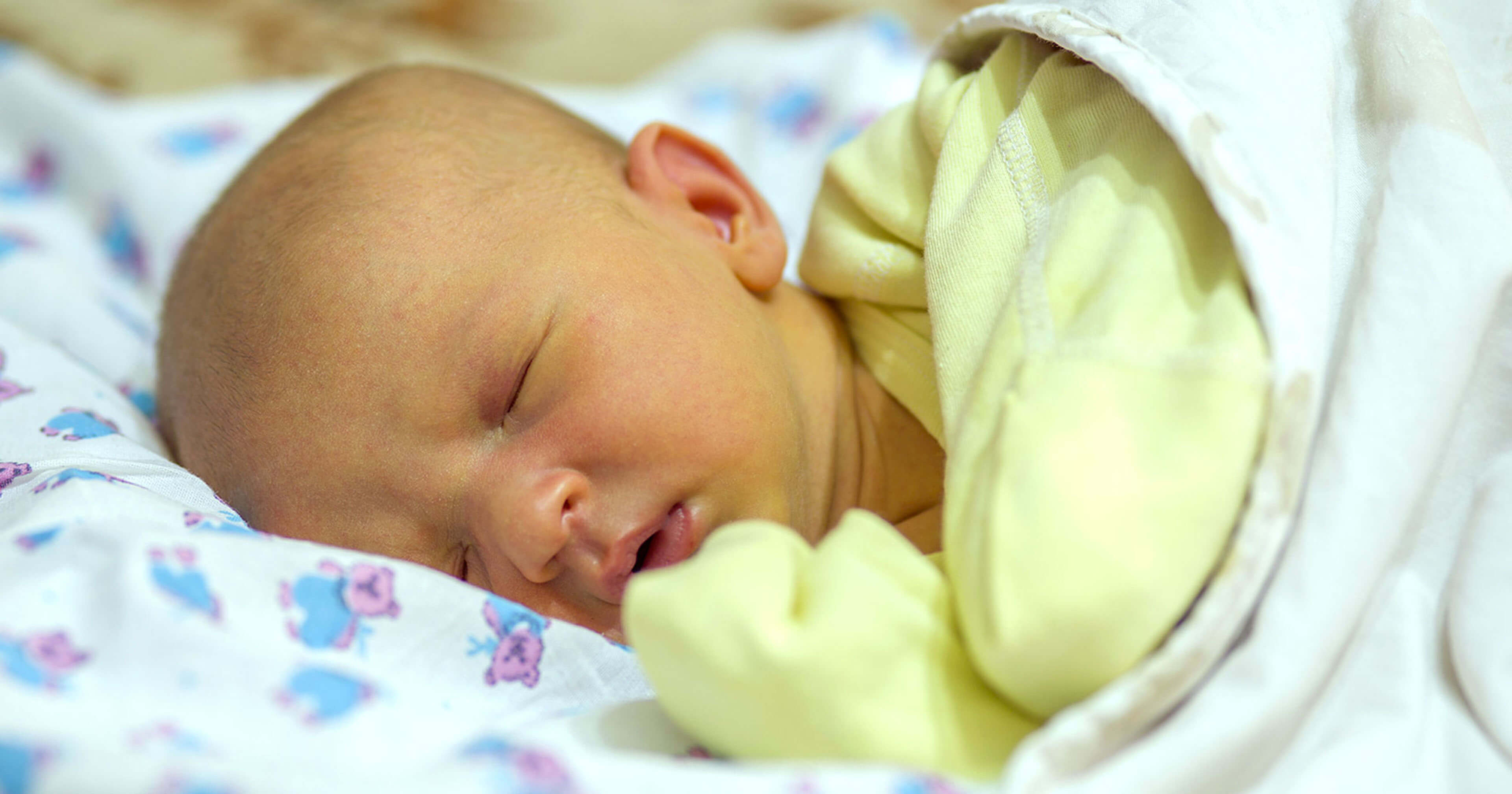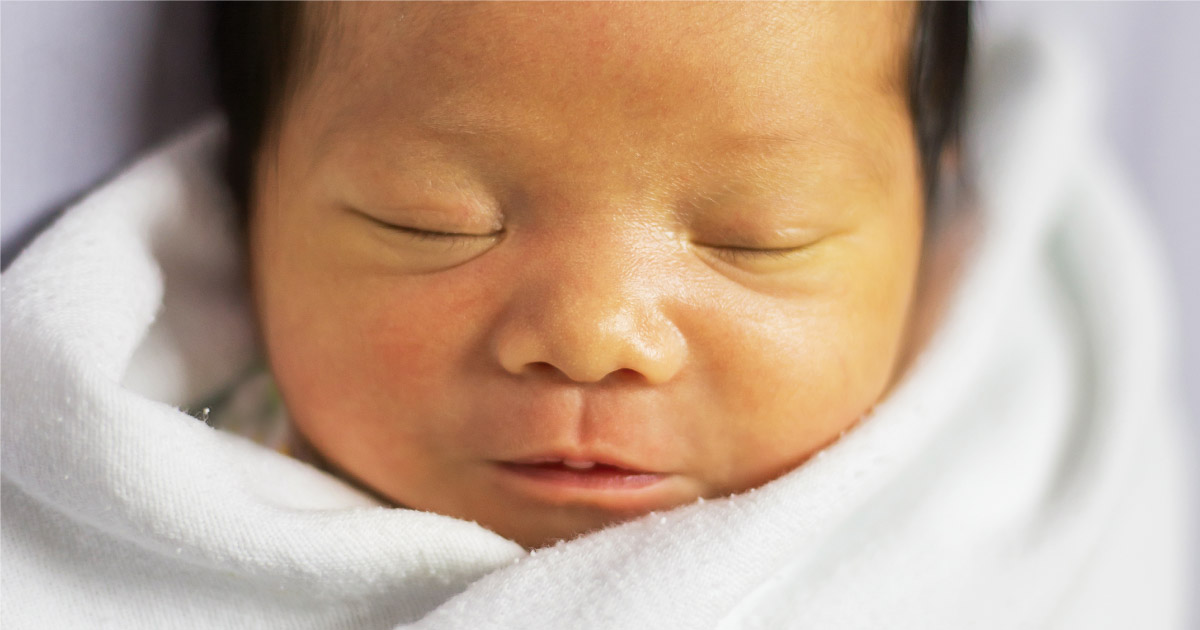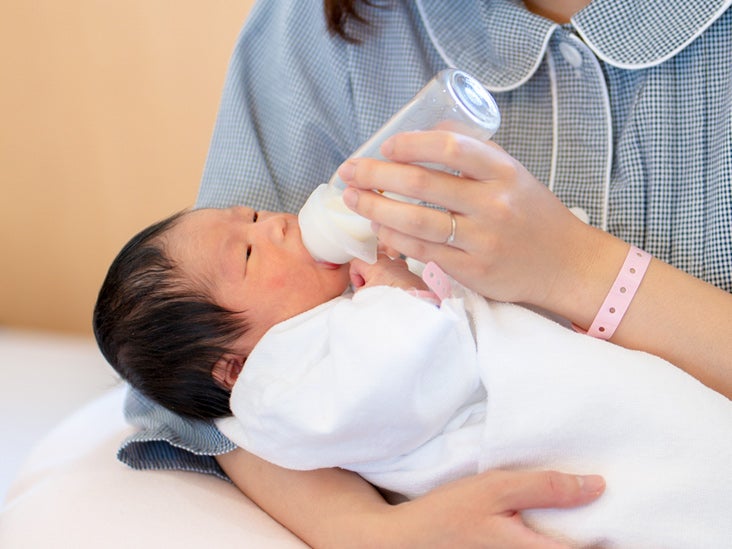What Is Newborn Jaundice?
Jaundice in babies is a frequent and usually harmless condition in which your baby’s skin and eyes appear yellow. It affects newborns of all ages. A total of 60% of newborns are affected by this condition. It is possible to develop jaundice when the blood has an abnormally high bilirubin concentration, a chemical generated by red blood cells as part of their normal breakdown process. It may simply fade away on its own, or your doctor may recommend light therapy or other treatments to help you get rid of it completely.

What is the cause of infant jaundice?
Some of the body’s red blood cells degrade and produce bilirubin in the blood every day. It is the liver’s responsibility to filter it out of the bloodstream. During pregnancy, your baby’s bilirubin is cleared out by your liver. However, your baby’s liver takes over this task after birth. When your newborn’s liver is unable to break down bilirubin as quickly as their body produces it, it begins to accumulate. Bilirubin is a yellow compound that causes your baby’s skin and eyes to turn yellow.

Babies who are most likely to experience jaundice include:
- Premature babies are those born too soon (those born before 37 weeks of pregnancy)
- These babies are not obtaining enough breast milk or formula, either because they are struggling to feed or because their mother’s milk has not arrived at the appropriate time.
- newborns whose blood type is incompatible with their mother’s blood type
- Incompatible blood types in babies whose blood type does not match with their mother’s.
- The younger brother of a youngster who was suffering from jaundice
- A child’s younger sibling who had jaundice
- Born to a mother with Rh-negative blood type or O type.

Among the other causes of jaundice are:
- birth bruising or another internal bleeding
- difficulties with the liver
- an infection
- an enzyme deficiency
- an abnormality in your baby’s red blood cells
It is common for jaundice to occur 2 or 3 days after your baby is born and diminish within the first few weeks following birth. Some types may manifest themselves sooner or later. Breastfeeding jaundice develops when your infant does not receive enough nutrients while you are breastfeeding. Possibly, your milk has not yet arrived, or your baby may be having problems latching on to your breast. The more food your child consumes, the more quickly their body eliminates waste, including bilirubin, from their system. Breast milk jaundice appears after the first week of breastfeeding.

When to Consult a Doctor
Most episodes of jaundice are harmless. However, jaundice can sometimes suggest an underlying medical issue. Severe jaundice also raises the danger of bilirubin entering the brain and causing lifelong brain damage.
If you experience any of the following symptoms, please contact your doctor:
- Jaundice spreads or gets more severe.
- Your infant has a temperature of more than 100°F (38°C).
- The yellow hue of your baby deepens.
- Your infant is not feeding well, appears listless or lethargic, and cries in a high tone.

Is it possible to avoid infant jaundice?
There is no effective strategy to avoid neonatal jaundice. You can have your blood type tested while pregnant.
If necessary, your baby’s blood type will be tested after birth to rule out the possibility of blood type incompatibility, which can cause neonatal jaundice. If your baby does have jaundice, there are some things you can do to keep it from getting worse:
- Check if your kid is getting enough nourishment from breast milk. Feeding your infant 8 to 12 times a day for the first few days keeps them hydrated, allowing bilirubin to flow through their bodies more quickly.
- You should give your infant 1 to 2 ounces of formula every two to three hours for the first week if you are not breastfeeding them at this time. Babies that are born prematurely or are smaller in size, as well as those who are breastfed, may require less formula. If you are concerned that your baby is consuming too little or too much formula, or if they are not waking up at least 8 times per 24 hours to feed, you should consult with your doctor.
Conclusion
If your newborn shows signs of jaundice, such as yellowing of the skin or eyes, during the first five days of their life, seek medical attention right once. Formula-fed infants should eat 1 to 2 ounces (about 30 to 60 millilitres) of formula every two to three hours. This should continue throughout the first week. Some parents choose to feed their newborns formula made from goat’s milk, which has been shown to be effective in treating jaundice. Jaundice should not be ignored but should be taken seriously and treated as soon as possible by a doctor.







